
Issue 4
July 2016
Accolades
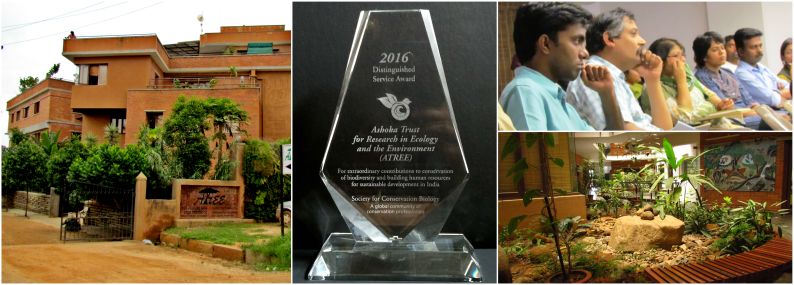 |
|
|
ATREE was presented the Society for Conservation Biology Asia Section’s Distinguished Service Award at the at the closing ceremony for SCB-Asia Section and Association for Tropical Biology and Conservation Asia-Pacific Chapter (ATBC Asia-Pacific) joint conference, Conservation Asia 2016 in Singapore. The award recognises and celebrates the outstanding achievements and contributions of conservation scientists or institutions that are working in Asia region. |
ATREE has been provisionally admitted as an Observer NGO by the United Nations Framework Convention on Climate Change (UNFCCC) Secretariat. Observer NGOs can attend negotiating sessions of the UNFCCC, conduct policy outreach events on the sidelines of the negotiations, and showcase their research through exhibits in the negotiations venue, thus reaching out to climate negotiators, intergovernmental organisations, civil society groups and the world’s media. |

Perspectives
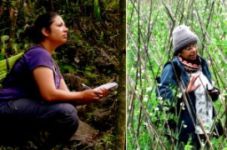 |
Tea Tag Takeaway Annesha Chowdhury, a PhD scholar at ATREE, and Soubadra Devi, a senior fellow and co-convener of the Centre for Biodiversity and Conservation at ATREE, write about the many advantages of having a Protected Geographic Indication(PGI) tag for the tea farmers of Darjeeling. “Only 87 estates that grow and process Darjeeling tea and are registered under the Tea Board of India were allowed to use the brand name. This had become a sore point among a large number of small tea growers who grow tea in the same geographical area, but would not be able to use the brand name Darjeeling from 2016. Read More>> |

ATREE in the News
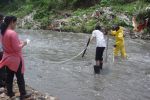
|
ATREE in the News Government ignored Bellandur warning for 8 years An article in Bangalore Mirror that talks about the how warning calls by scientists on Bangalore’s Bellandur lake’s worsening state went unheeded, quoted Dr Sharachchandra Lele, a senior fellow at ATREE, who expressed the need to look beyond quick fixes and make commit to a systemic change in how Bangalore deals with its waste. DrLele was a member of a state government appointed of the Lake Rejuvenation Committee which aimed at rejuvenating the Bellandur-Varthur Lake. Read More>> |
|
Efforts to usher in behavioural change yield plastic-free results The Hindu wrote an article about ATREE’s engagement with the Forest Department at Kalakkad – Mundanthurai Tiger Reserve (KMTR), to reduce the impact of anannual pilgrimage to Sorimuthu Ayyanar Temple for the ‘Aadi Amaavaasai’ celebrations. ATREE enlisted the support of several volunteers and the forest department to execute strategies aimed at the reduction of plastic durables. This is the 7th year that ATREE has participated in helping reduce impact of this gathering on the KMTR. Read More>> |
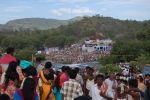
|
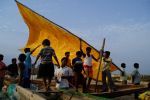
|
No harvesting of baby clams in Vembanad Lake In a move intended to stave off the over-exploitation of the fish species, restrictions have been imposed on harvesting clams of less than 12 mm in Vembanad Lake. The annual Fish Count conducted by ATREE in Vembanad revealed a gradual reduction in the number of fish in the lake. Speaking to the Hindu, Ashish Matthew George, a researcher at CERC, talked about how baby clams have a role in balancing the chemical composition of water. Read More>> |
|
Real bite: study finds that dog-wildlife interactions are getting deadlier Catch News, an online news portal, covered a study led by Chandrima Home, A PhD scholar at ATREE, about the threats feral dogs pose to wildlife. The study, which surveyed wildlife researchers, naturalists and journalists, found that 74% reported attacks by dogs on wildlife, of which 35% occurred inside protected areas. Species that have reportedly been attacked by dogs include spotted deer, Sambars, Blackbucks and Great Indian Bustards. Read More>> |
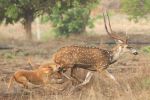
|

|
Bengaluru's Jakkur Lake turns wasteland; redesign begins An Economic Times article about how wetland rejuvenation efforts in the Jakkur Lake has not yielded the right results, quotedDrPriyanka Jamwal, an ATREE fellow who works on water quality studies, on the worsening water quality of the lake.DrJamwal says that the lake not only receives water from the sewage treatment plant set up in its premises, but also from storm water drains that carry waste water from neighbouring suburbs. Read More>> |
